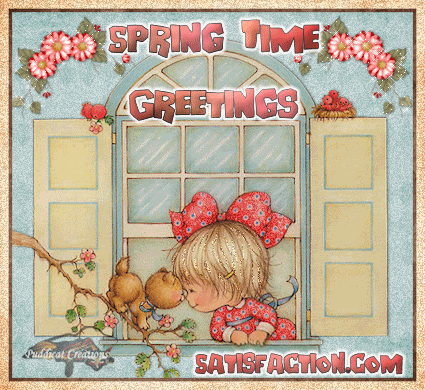
Linore, what drew you to writing Regency Romance novels?
Georgette Heyer and Jane Austen books gave me a love for the period, and there weren't any Christian regencies to be found. I wanted to change that.
Where did you find your inspiration for Ariana and Phillip?
I'm not sure. I think they're both amalgamations of people I've read about and known.
What do you think we could learn today from how society operated in the Regency period?
England in the 1800s is a world away from the 21st century. Times have changed, but people haven't. Men and women of the time were concerned with their appearances, their finances, their futures, finding the right spouse, and so on, just as we are, today. How they went about pursuing these ends is where all the difference lies, however, and this is precisely where the interest and adventure opens up for writers. Bringing to life the means and methods of everyday life and timeless concerns from the regency. It is fun and enlightening as a glimpse into the past, but readers can also identify with the basic human need to be genuinely loved for oneself, no matter the setting or time period, and to be certain of one's convictions concerning life, eternity, and faith. Having said that, it is good to remind modern readers that valuing one's purity can be mainstream, as it was then; or that the struggle to find a true love and a sense that one's life has value, has always been a human issue.
What do you hope readers will take away from your books?
I hope my readers will feel as though they've been transported to the Regency for a good, satisfying visit; While they're visiting, they'll be reminded that God is involved in their life, and that happy endings are possible for everyone.
Any Regency romance is going to be compared to Jane Austen's novels ~ how are your books similar / different?
I don't think most regencies are written with this comparison in mind at all. However, other people say my book is "Austen-like." That is a huge compliment, and one I would love to live up to.
The sequel, The House in Grosvenor Square, is releasing in 2009.
Do you have more Regency novels planned?
My editor and I are tossing around ideas right now. I do have a few more regencies in mind.
What are you working on at the moment? A sneak peek, please.
I'm exploring whether to do a third book in the Regency Series, which at present is comprised of Before the Season Ends, and The House in Grosvenor Square. Book three would begin about five years later (about 1818) and follow the lives of a number of people who were introduced in the first two books. I would also probably introduce one new couple.
Do you ever bang your head against the wall from the dreaded writer's block? If so, how do you overcome it?
I do something else. If I can't write a scene for a book, I can always write an article. I can update my blog. I can't really force a scene when it isn't coming; I find that getting busy and doing something else is the best thing I can do for the book and for me (rather than beat myself up). One thing about having an online presence today is that there is never a shortage of tasks to be done, including a great many writing tasks. Since I write historical (regency) romance, there are always tons of subjects I can research and write about, putting them into articles for my ezine, or out there on the web.
Novelists sometimes dig themselves into a hole over implausible plots, flat characters, or a host of other problems. What's the most difficult part of writing for you (or was when you first started on your novel journey)?
I think for me the biggest challenge was to believe that I could write a novel in small increments. As a mom of five, four of whom are still home year-round (one is in college), having frequent interruptions is a fact of life. Writing takes a concentration so deep so that when I first started doing scenes, I would find myself getting woozy after standing up. I was shocked at the level of exertion it took to use my brain that hard, I guess!
How did (or do) you climb out (overcome it)?
If I do get stuck at some point in the plot, I let it simmer in my mind. I also exercise--for some reason, when I am physically active, my brain gets going in a way that doesn't always happen when I'm sitting with my laptop before me. Swimming and doing the treadmill (walking) almost always result in wonderful new ideas I just can 't wait to get on paper. Sometimes, I've even had to stop walking and run to the pc just to get the idea down so I don't forget. By the way, I always pray for the right idea, too. There is no better writer than God.
The second "nifty" way to solve a plot (or other) problem in a book is to let it sit awhile without reading it. When you come back to it after a long enough interval (as long as you can give it) solutions just present themselves. I find the same thing happens to me with crossword puzzles--if I'm stuck, I put it down and when I come back to it--even an hour later--the word is there. So the key is, give yourself permission to take a break.
Some authors report writing 5-10 thousand words a day. Do scenes flow freely from your veins, or do you have to tweeze each word out?
In general, I write more than I need and later have to cut back. I don't use a word count, but I may set a goal of one chapter a day or two chapters for a busy week. Other times, I don't think in terms of chapters at all, just events. I may break an event down into four scenes, say, and so my goal for that day will be to get the whole event on paper. In other words, finish the four scenes. Life changes so rapidly with the children, that for me, a hard and fast writing goal just wouldn't work. And, I focus on results, not time spent. Instead of, "Now I'll write for three hours," I say, "Now I'll have this or that happen to a character, or, 'I'll show a different side to this person." When I have accomplished that goal, no matter how long it took, I feel satisfied, and only then.

Author Bio & mini-bio
BIO-LINORE ROSE BURKARD
Linore Rose Burkard creates Inspirational Romance for the Jane Austen Soul. Her characters take you back in time to experience life and love during the era of Regency England (circa 1800 - 1830). Fans of classic romances, such as Pride & Prejudice, Emma, and Sense & Sensibility, will enjoy meeting Ariana Forsythe, a feisty heroine who finds her heart and beliefs tested by high-society London.
Ms. Burkard's novels include Before the Seasons Ends and The House in Grosvenor Square (coming April, 2009). Her stories blend Christian faith and romance with well-researched details from the Regency period. Her books and monthly newsletter captivate readers with little-known facts, exciting stories, and historical insights. Experience a romantic age, where timeless lessons still apply to modern life. And, enjoy romance that reminds us happy endings are possible for everyone.
Publisher's Weekly affirms, "Ms. Burkard's command of period detail is impressive, evident in material details, but also in dialogue. Her novels even help non-Regencyphiles learn the difference between ladies' pelisses and spencers...On the whole, it's a tasty confection."
Ms. Burkard began writing when she couldn't find a Regency romance with an inspirational twist. "There were Christian books that approached the genre," she says, "But, they fell short of being a genuine Regency. I knew that many women like me want stories that are historically authentic and offer glimpses of God's involvement in our lives. So, I finally gave up looking and decided to write one myself."
Ms. Burkard was raised in New York, where she graduated magna cum laude from the City University of New York with a Bachelor of Arts in English literature. She lives with her husband and five children in a town full of antique stores and gift shops in southwestern Ohio. Her hobbies include working on four new Regency novels, family movie nights, swimming, and gardening.


Short description of Before the Season Ends
England, 1813: Romantic woes at home send Ariana Forsythe to her Aunt Bentley's town house in the fashionable Mayfair district of London. There she finds worse troubles than those that prompted her flight from home. Under her aunt's watchful eye, Ariana is soon steeped in high society--and at odds with Mr. Phillip Mornay, London's current darling rogue.
Then, unexpectedly, rumour of a scandal changes Ariana forever. Her faith and her future are at stake in an unexpected adventure that gains even the Prince Regent's attention.
Will Ariana's faith survive this test? And what about her heart? For it is Ariana's heart that most threatens to betray the truths she has always believed in. When she finds herself backed against a wall, betrothed to a man who cannot share her faith, how can it ever turn out right?
Read my Review of the book here.Buy from ChristianBook.com
















































No comments:
Post a Comment